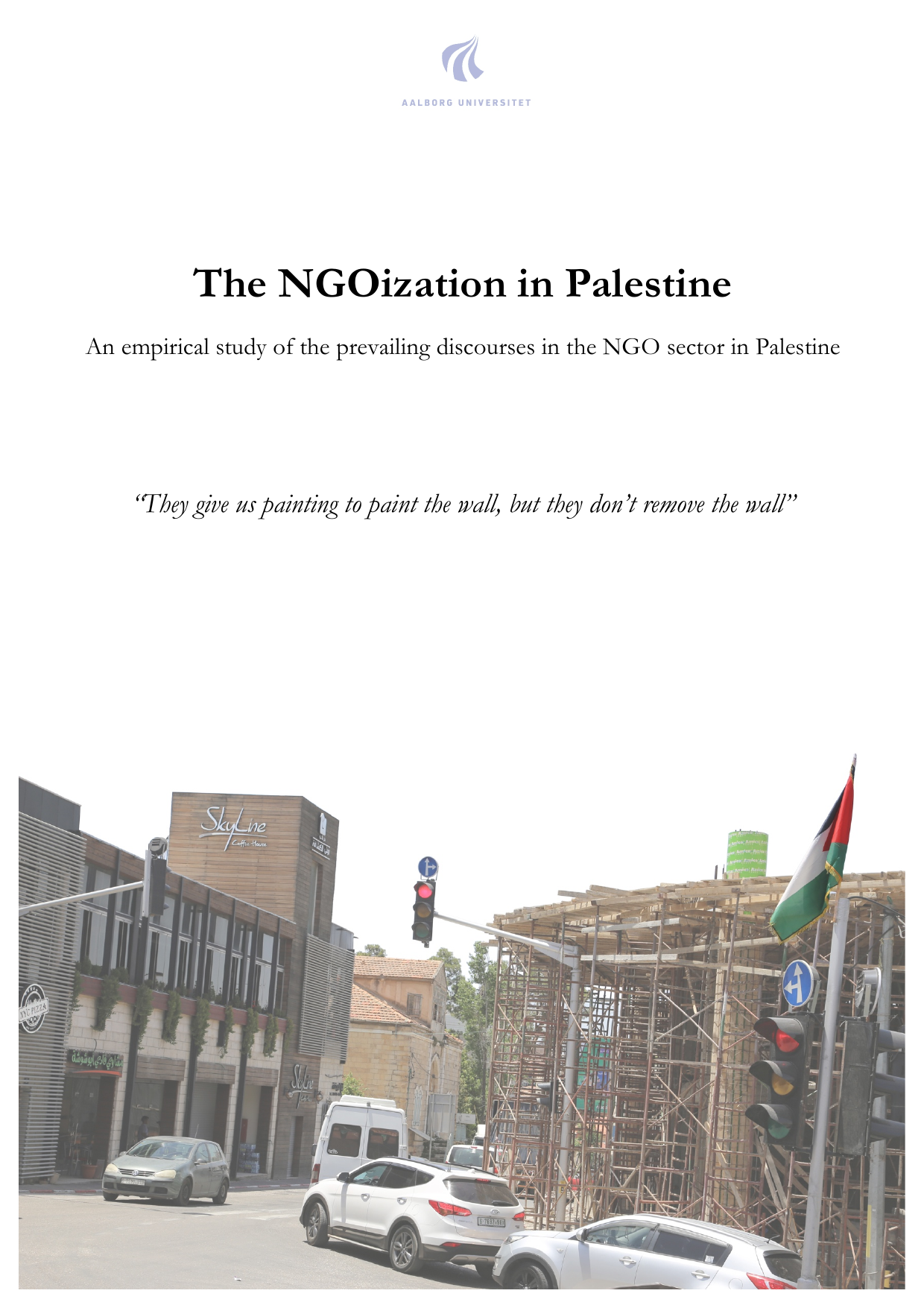
Master Thesis - The NGOization in Palestine: An empirical study of the prevailing discourses in the NGO sector in Palestine
Translated title
Master Thesis - The NGOization in Palestine: Et emperisk studie af af de herskende diskurser i NGO sektoren i Palæstina
Term
4. term
Education
Publication year
2018
Submitted on
2018-05-31
Pages
95
Abstract
The aim of the thesis is to examine how and why local organisations in Ramallah present counterdiscourses towards the international discourse. To do so, the thesis applies the theoretical framework of Ernesto Laclau and Chantel Mouffe’s discourse theory, to the empirical data. The thesis relies on a (shorter) ethnographic fieldwork, where the data has been gathered through a combination of a six-months internship, one-week preparatory fieldwork and five weeks gathered fieldwork in Ramallah. During our fieldwork, we conducted seven interviews with organisations and experts within the NGO sector in Palestine. Additionally, central data was gathered through participant observations, informal conversations and secondary literature. What the thesis reveals is, that there exist two dominating discourses within the NGO sector in Palestine, namely a local and an international discourse, where the latter is highly influenced by Western ideologies. Furthermore, our findings reveal that there exist various counter-discourses that are constantly battling against the international discourse to be the hegemonic one. The three main counter-discourses, that we identified doing our fieldwork in Ramallah, was ‘The International Donor’s Agenda Discourse’, ‘Inferior Status Discourse’ and ‘Individualisation Discourse’. These counter-discourses are built upon the notion, that the influx of NGOs in Palestine has weakened, and some would even say destroyed, the Palestinian civil society. What is being argued is, that the international donors push forth a political agenda through several restrictions that constrain the organisations autonomy. Furthermore, it is being argued that the Palestinians interlink the NGO sector with new forms of colonial power structures, which constrain the Palestinians from forming their own national project. At last but not least, the thesis reveals that the influx of NGOs has contributed to a more individualised and passive civil society, as a consequence of the neoliberal and capitalistic system that followed with the influx of NGOs. The thesis further reveals, that there is a generational gap in how the NGOs are perceived, where the younger generation seems to take advantage of the opportunities they offer, while the older generation have a far more critical stance towards their existence. At last, the thesis reveals that these counter-discourses stem from certain personal or ideological perspectives, namely from a romanticised notion of the past, a diaspora perspective, and from the ideology of Marxism. The thesis thereby concludes, that there do not exist one static dominating discourse, but rather a constant discursive battle between the international discourse and counter-discourses.
Documents
